Congratulations on your exciting journey into residency! Accepting a residency program offer is a significant milestone, and crafting the perfect letter can set a positive tone for your future relationships within the program. Whether you're expressing gratitude or confirming your intentions, a well-structured acceptance letter can leave a lasting impression. Dive into our article to discover the essential elements and tips for writing your acceptance letter with confidence!

Professional Tone
Acceptance of a residency program offer is an important step in advancing a medical career, with candidates often required to express gratitude and indicate their commitment to the program. Key elements to include are the specifics of the program, such as the name of the residency, the start date, and the name of the institution or hospital offering the training. Acknowledging the faculty and staff involved in the selection process adds a personal touch, highlighting appreciation for their support and guidance. Demonstrating enthusiasm for the educational opportunities and clinical experiences that lie ahead is crucial, as is a willingness to engage with colleagues and contribute positively to the residency community. Finally, a professional closure with an expectation of further communication or formalities can reinforce commitment to the program.
Gratitude Expression
Receiving a residency program offer at a prestigious institution, such as Johns Hopkins Hospital in Baltimore, Maryland, represents a significant milestone in a medical career. Expressing gratitude for the opportunity is essential. Candidates should highlight appreciation towards the program director, faculty members, and administrative staff for their guidance throughout the application process. Mentioning specific aspects of the program, like innovative research opportunities or exemplary mentorship, illustrates genuine enthusiasm. A professional tone is important, ensuring clarity and respect while reflecting on the commitment to contribute positively to the residency community.
Confirmation of Acceptance
The confirmation of acceptance to a residency program represents a significant milestone for medical graduates. This acknowledgment typically occurs after receiving an official offer from institutions like University Hospital or Mercy Medical Center. It is crucial to review the program details, including orientation dates (often in June) and specific requirements for onboarding. Candidates may also need to submit additional documentation, such as proof of medical licensing examination scores and immunization records. Once all conditions are met, sending a timely written response, ideally within a week, solidifies the commitment to the residency, marking the beginning of an intensive training period that can span several years.
Start Date Mention
The excitement of accepting a residency program offer marks a pivotal moment in a medical professional's journey, particularly when the start date aligns with July 1st, a common commencement for many residency programs across the United States. This prestigious opportunity at renowned institutions like Johns Hopkins Hospital or Mayo Clinic signifies not only a personal achievement but also the beginning of rigorous training that prepares residents for specialized fields such as internal medicine or surgery. Participants often engage in a demanding schedule, which includes on-call hours and rotations through various departments, fostering critical skills and knowledge essential for their future medical careers. The formal acceptance solidifies an individual's commitment, paving the way for valuable mentorship and hands-on experience in high-stakes environments.
Contact Information
Medical residency programs in the United States often require applicants to formally accept offers through written communication. Accepted candidates should include relevant personal information, the residency program's details, and a professional tone. Typically, critical components consist of full name, contact number, email address, residency program name, and address of the institution. Furthermore, attention to timelines, due dates, and confirmation of acceptance by returning signed documents is pivotal for securing placement in competitive fields like Internal Medicine, Surgery, or Pediatrics. Successful communication reflects professionalism and enthusiasm towards the opportunity.
Letter Template For Residency Program Offer Acceptance Samples
Letter template of residency program offer acceptance for medical graduates.
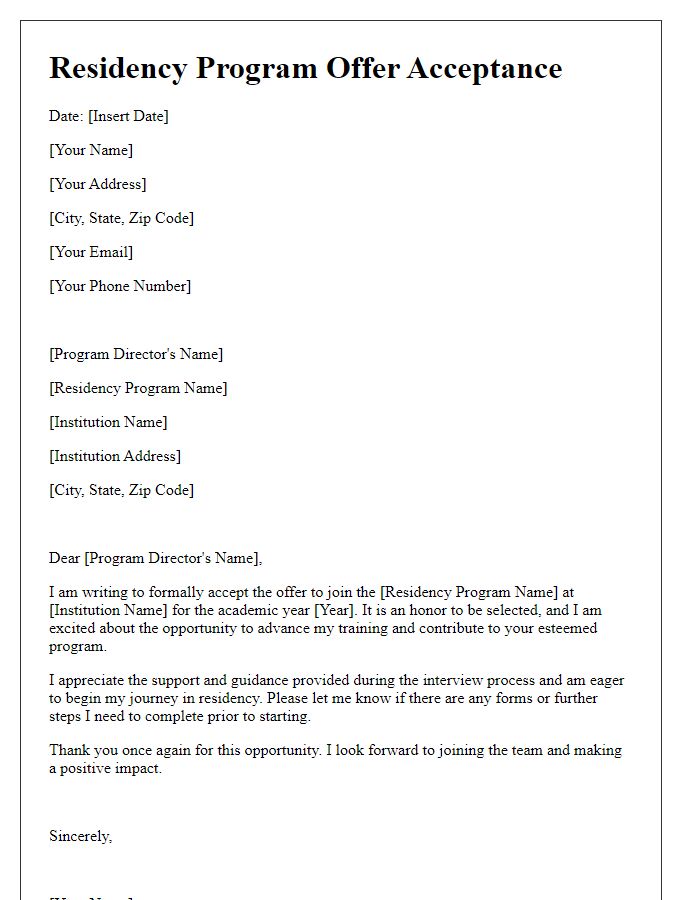
Letter template of residency program offer acceptance for international applicants.
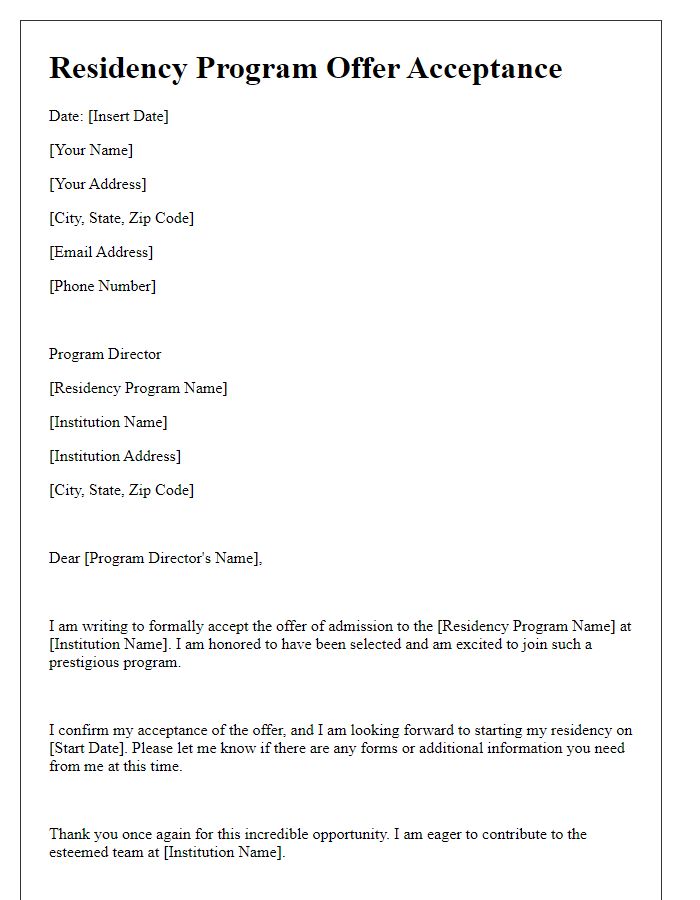
Letter template of residency program offer acceptance with specialty focus.
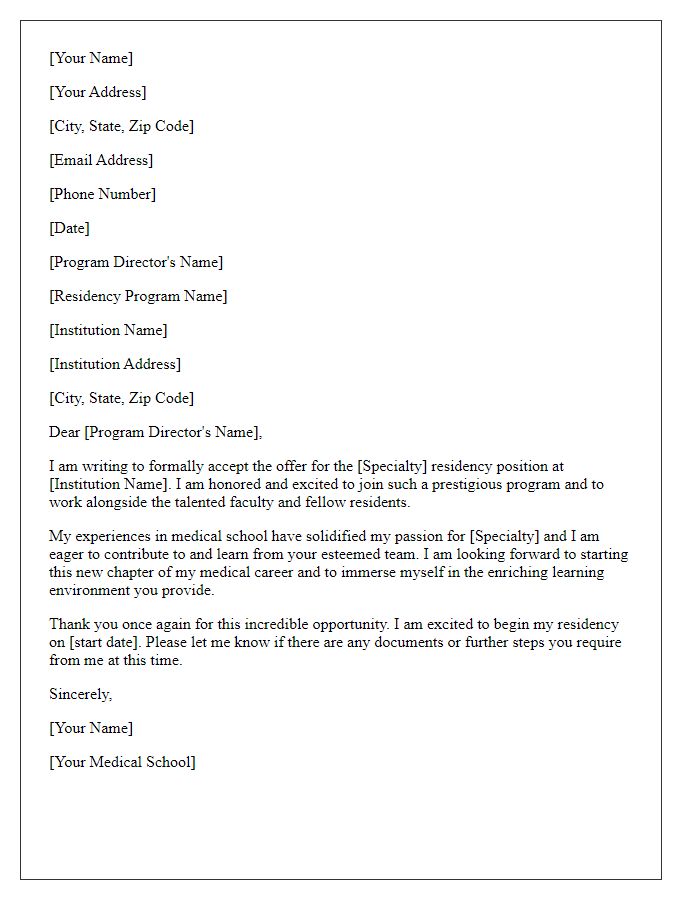
Letter template of residency program offer acceptance for family medicine.
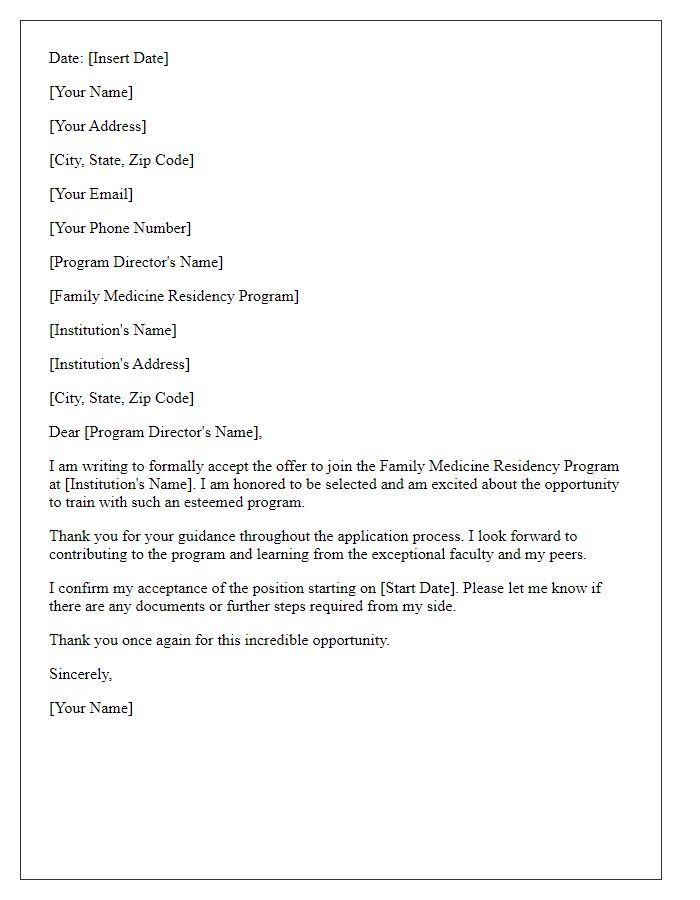
Letter template of residency program offer acceptance with conditional remarks.
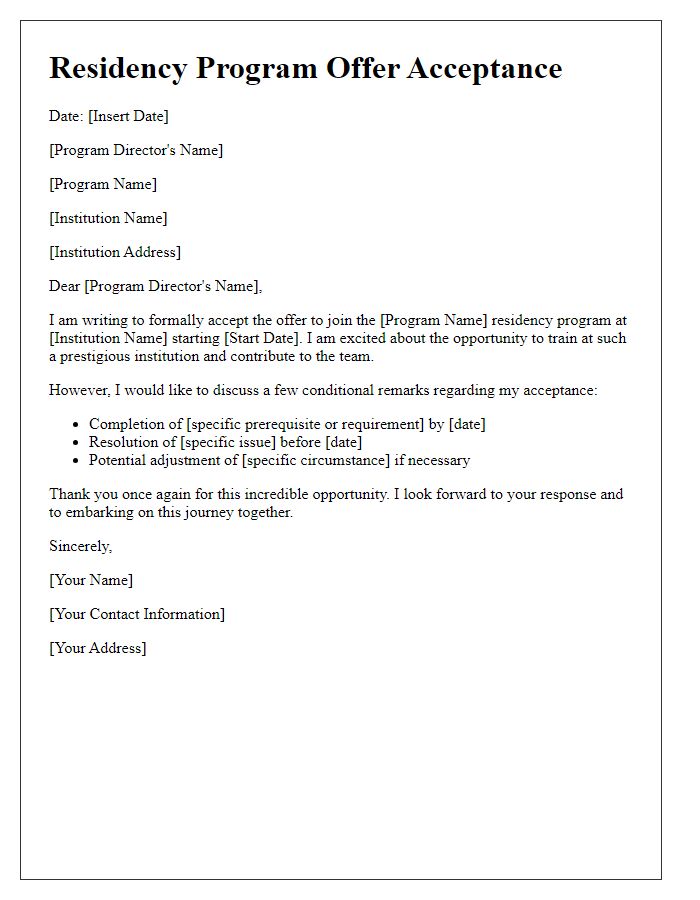
Letter template of residency program offer acceptance for surgical specialty.
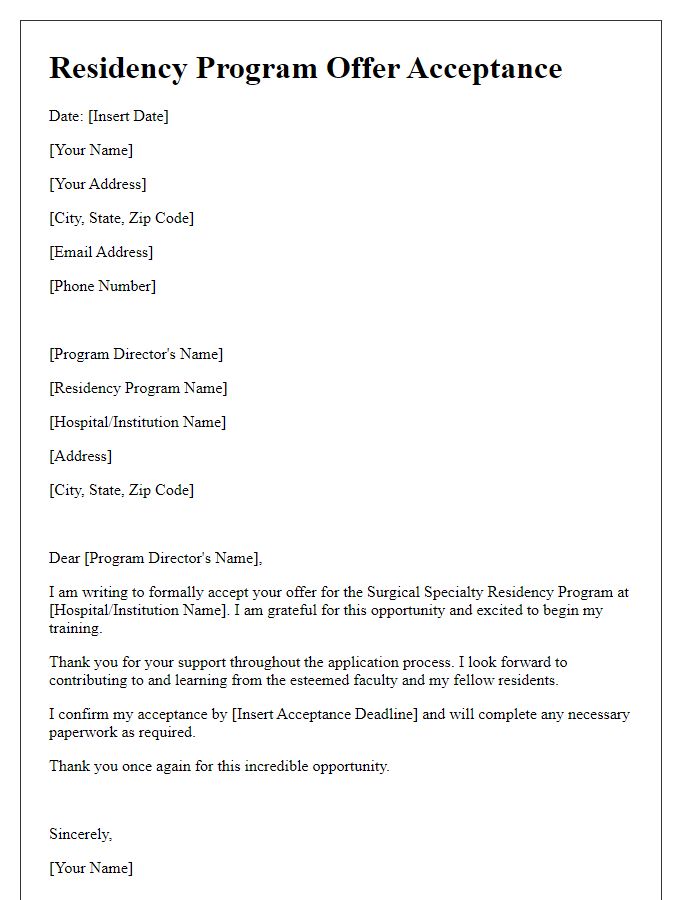
Letter template of residency program offer acceptance with confirmation of start date.
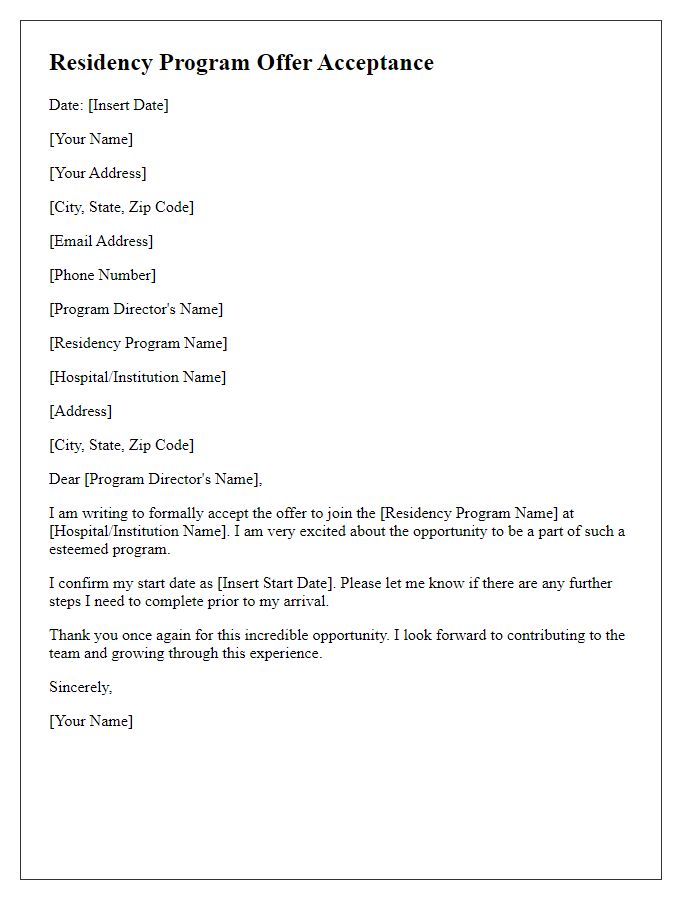
Letter template of residency program offer acceptance for competitive specialties.
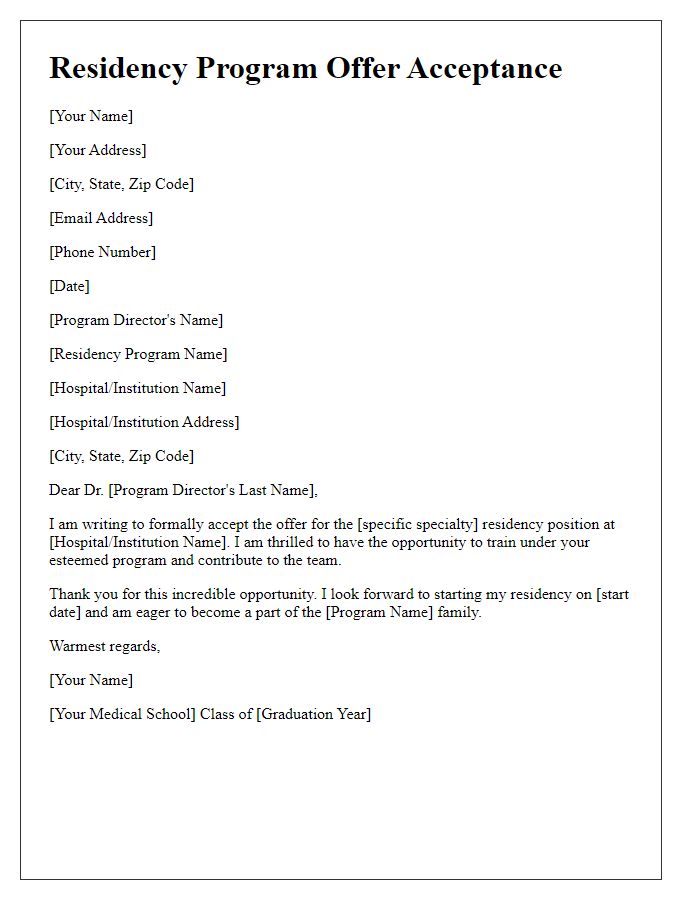

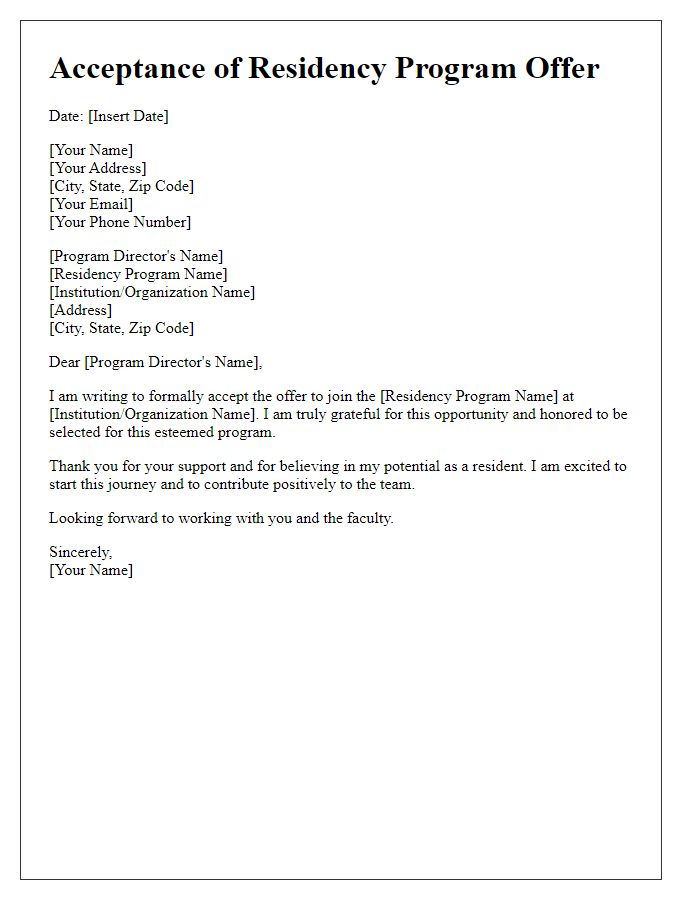
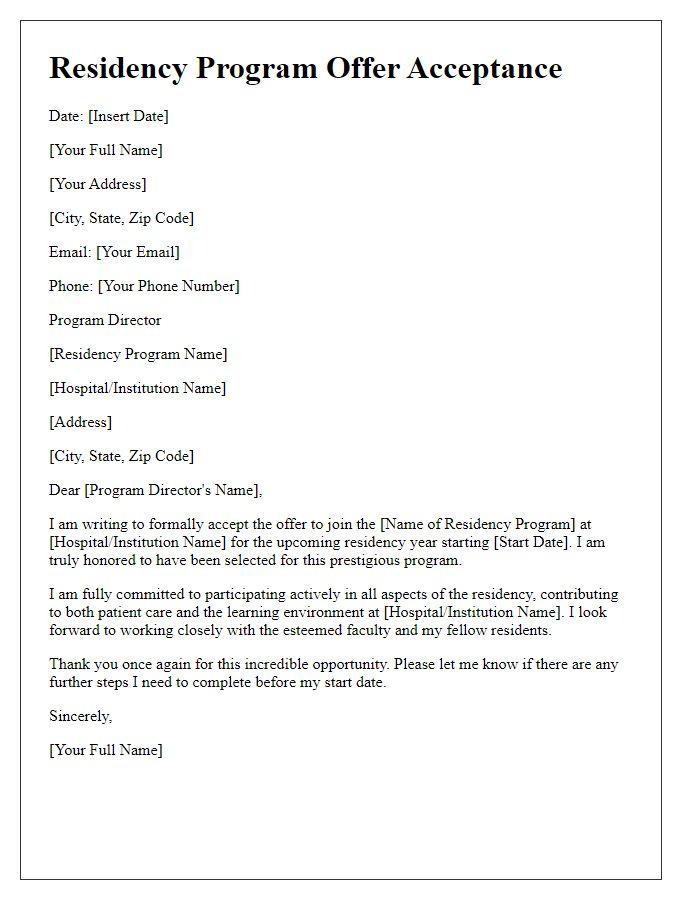


Comments